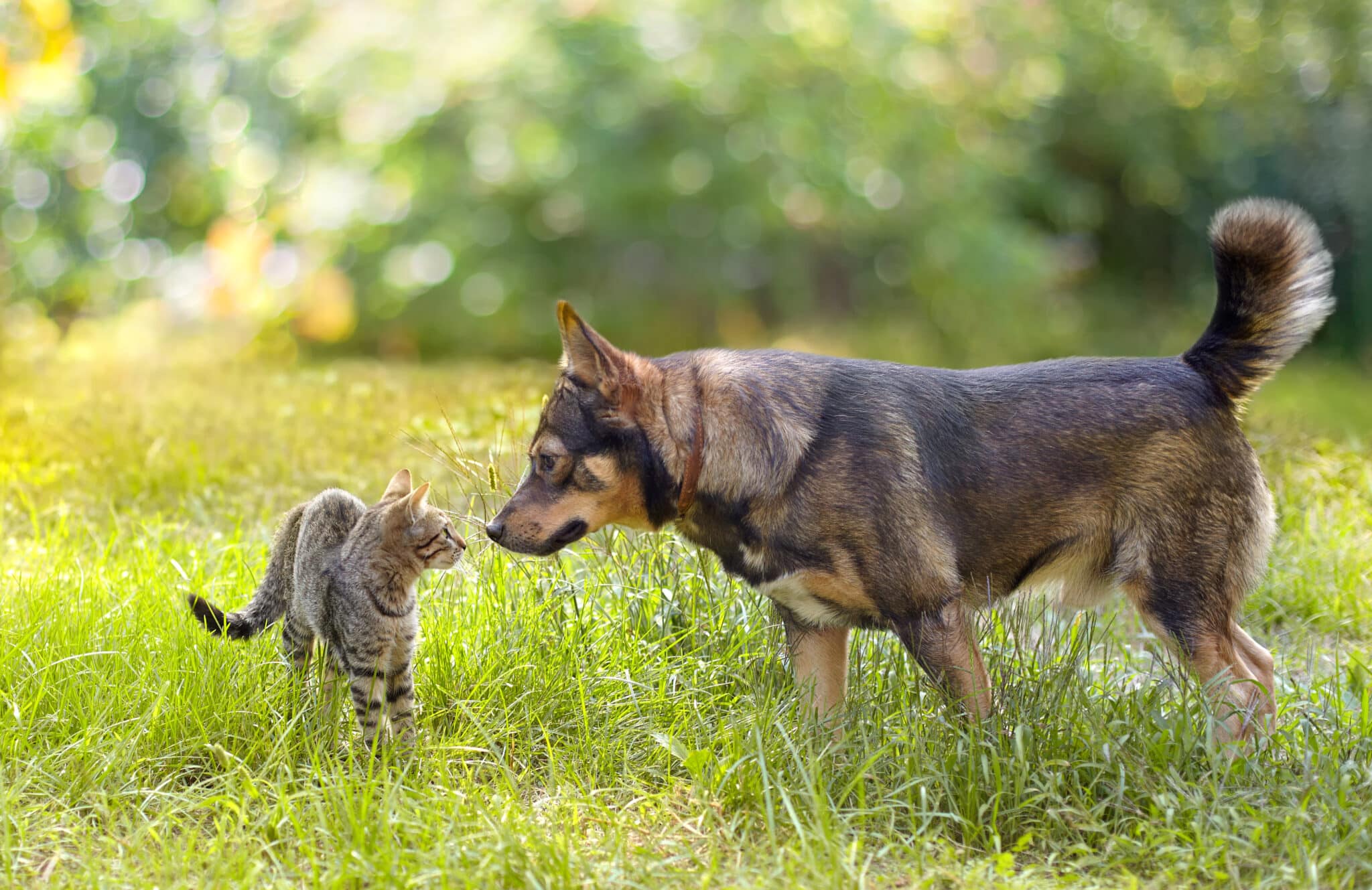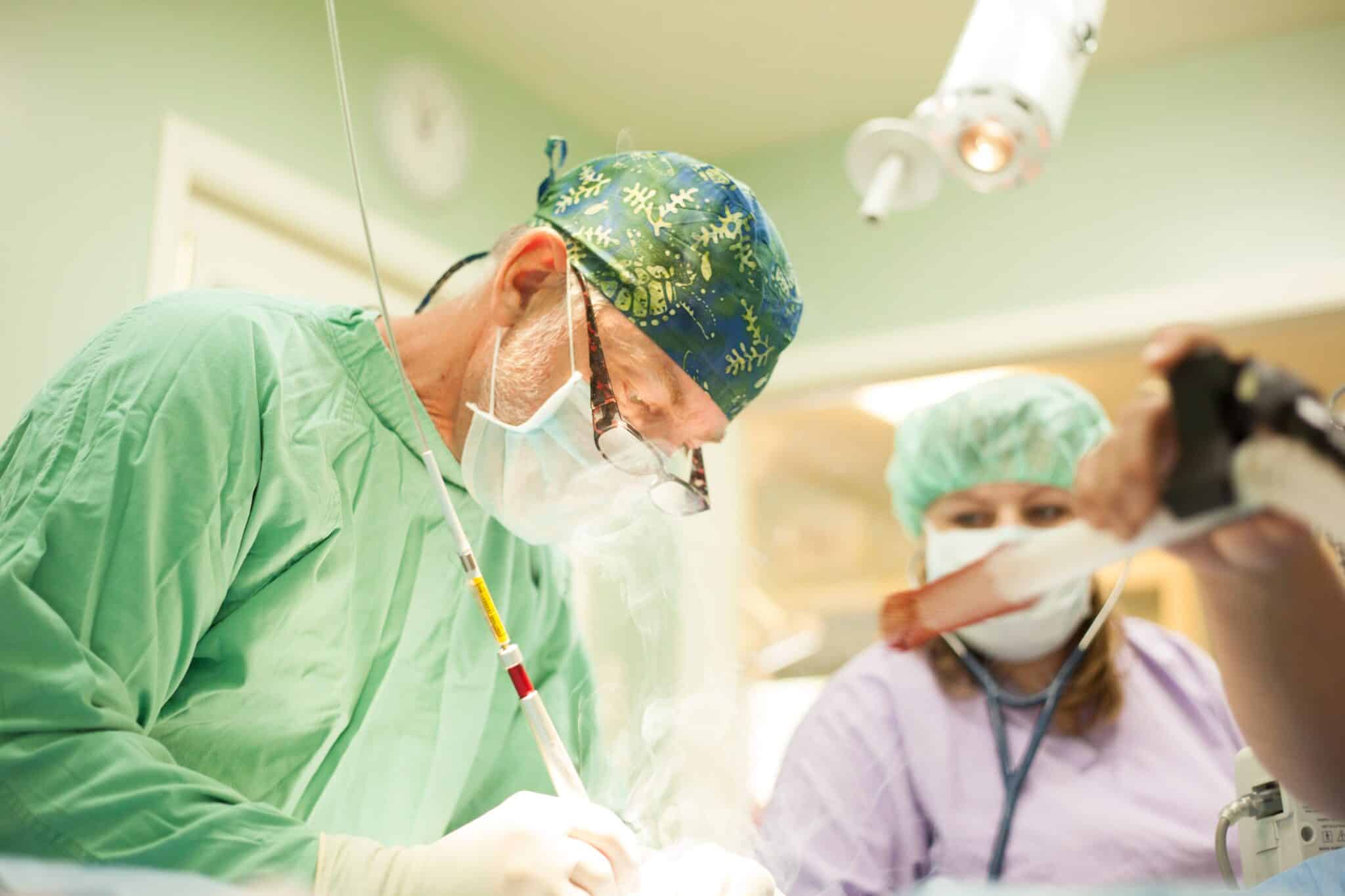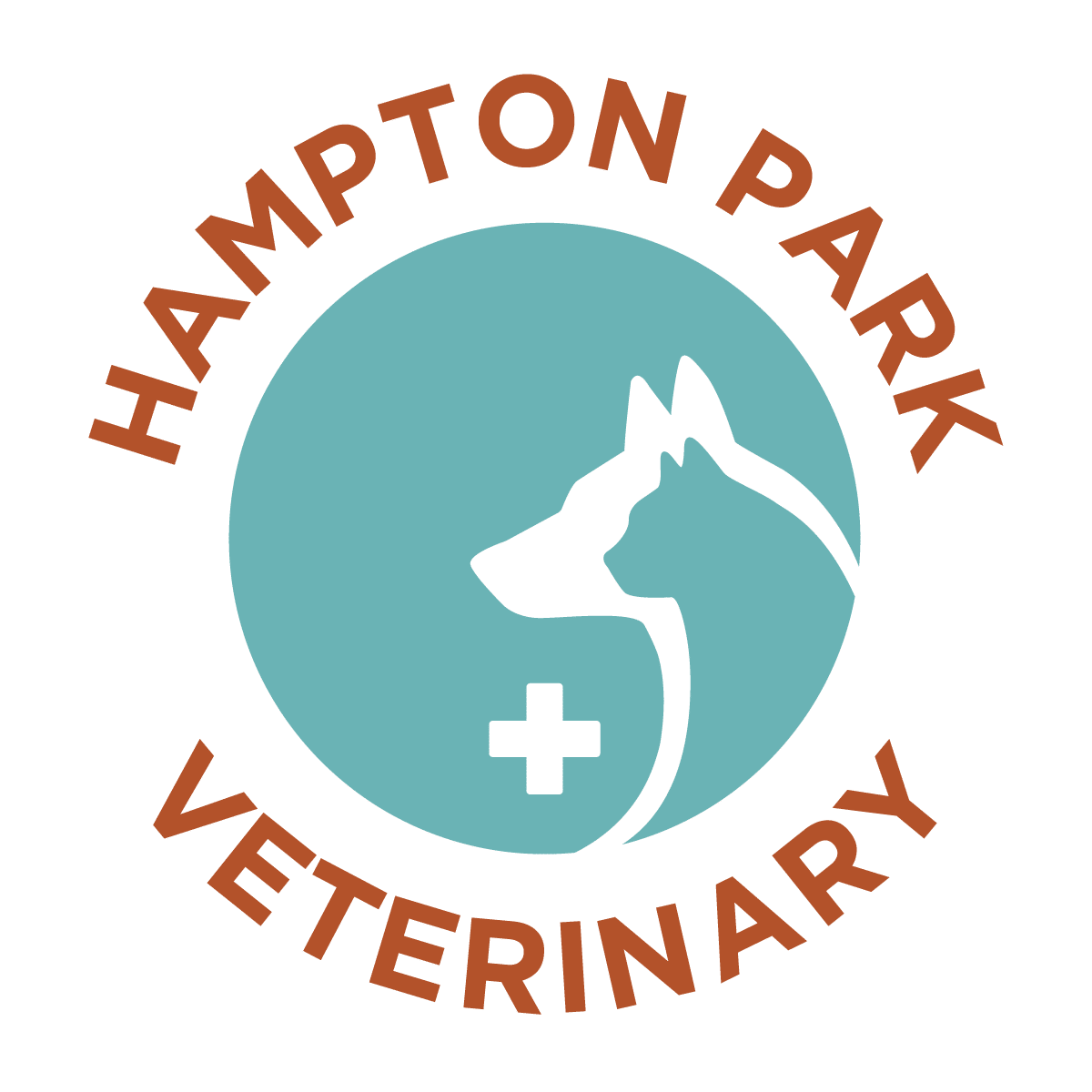Veterinary Surgery in Charleston, SC
Like humans, pets require regular medical care throughout their lives, which can frequently include surgical procedures. At Hampton Park Veterinary Hospital, we perform several types of veterinary surgery. We take advantage of all the technological tools at our disposal to ensure the best possible outcome and a speedy recovery for your beloved pet.
What is Veterinary Surgery?
Vet surgery is surgery performed on animals by veterinarians to treat injuries or diseases. All veterinarians receive training in general surgery basics during school. Dr. Baxter performs a wide variety of soft tissue surgery procedures. We have a board-certified veterinary surgeon who comes to our hospital and performs orthopedic surgeries on-site.

Why Might My Pet Need Veterinary Surgery?
There are several reasons why your pet may need surgery, including:
- Spay and neuter: Spaying and neutering are among the most common types of surgery for pets. Spaying (for females) and neutering (for males) ensures that pets can’t reproduce, eliminates the risks of testicular cancer in males, and lowers the risk of uterine and breast cancers in females.
- Laceration repair or other trauma repairs: A laceration is a wound produced by the tearing of body tissue. A laceration repair can be a minor surgery if the laceration is small or a major surgery if the laceration is large, deep, or infected. A laceration repair will help the torn tissues heal faster, with less likelihood of infection or excessive scar tissue.
- Soft tissue surgery: Soft tissue surgery encompasses various procedures involving internal organs, skin, and muscles.
- Growth removal: Growths that are growing and interfering with your pet’s movement, bothering your pet, or those that are malignant are best removed surgically as soon as possible.
- Removal of a foreign object or obstruction in the GI tract: Inevitably, pets eat things they shouldn’t. A gastrointestinal (GI) foreign body is any non-food item that alters the normal flow of materials through the GI tract and can be life-threatening if not removed immediately. Even if a foreign object does not cause obstruction, it can cause significant irritation of the tissues as it passes through the GI tract.
CO2 Laser Veterinary Surgery
A laser is an optoelectronic device that produces highly concentrated light rays. Carbon dioxide (CO2) lasers have become a standard of care in veterinary surgery. At our Charleston, SC veterinary hospital, we do not use scalpel blades but rather a CO2 laser to perform all surgeries.
Dr. Baxter has nearly 30 years of experience in anesthesia and general surgery and has been doing laser surgery exclusively for 15 years. Unlike traditional surgery using scalpel blades, CO2 lasers use an invisible beam of CO2 to cut through the tissues.
It provides increased precision, resulting in reduced bleeding because it cauterizes the blood vessels as it makes its incisions and reduces pain since it blunts the nerve endings as it cuts through them. CO2 lasers also lower the risk of infection, reduce swelling and tissue trauma, and allow for a faster healing process.
With CO2 laser veterinary surgery, you will save more money on medication, overnight stays, and other costs while providing your pet with a safer and higher quality of treatment.

Pain Management for Pet Surgery
We take pain control and the comfort of our patients very seriously at Hampton Park Veterinary. We take great care to pre-screen and evaluate our patients for anesthetic and surgical safety before the procedures occur.
We then pre-treat them with pain medications before any type of veterinary surgery ever starts and regulate pain control during all procedures. We also offer ongoing pain control when the patient leaves the hospital and goes home to recuperate, usually through various oral medications.
Veterinary Surgeon in Charleston, SC
At Hampton Park Veterinary Hospital, we’re well-equipped to perform most minor and major surgical procedures, from spays and neuters to more complicated emergency, orthopedic and soft tissue surgeries. If you’re concerned that your pet may need surgery or are in need of other veterinary services, don’t hesitate to contact us today to schedule an appointment with our highly experienced veterinarians to help get your pet on the road to recovery.

